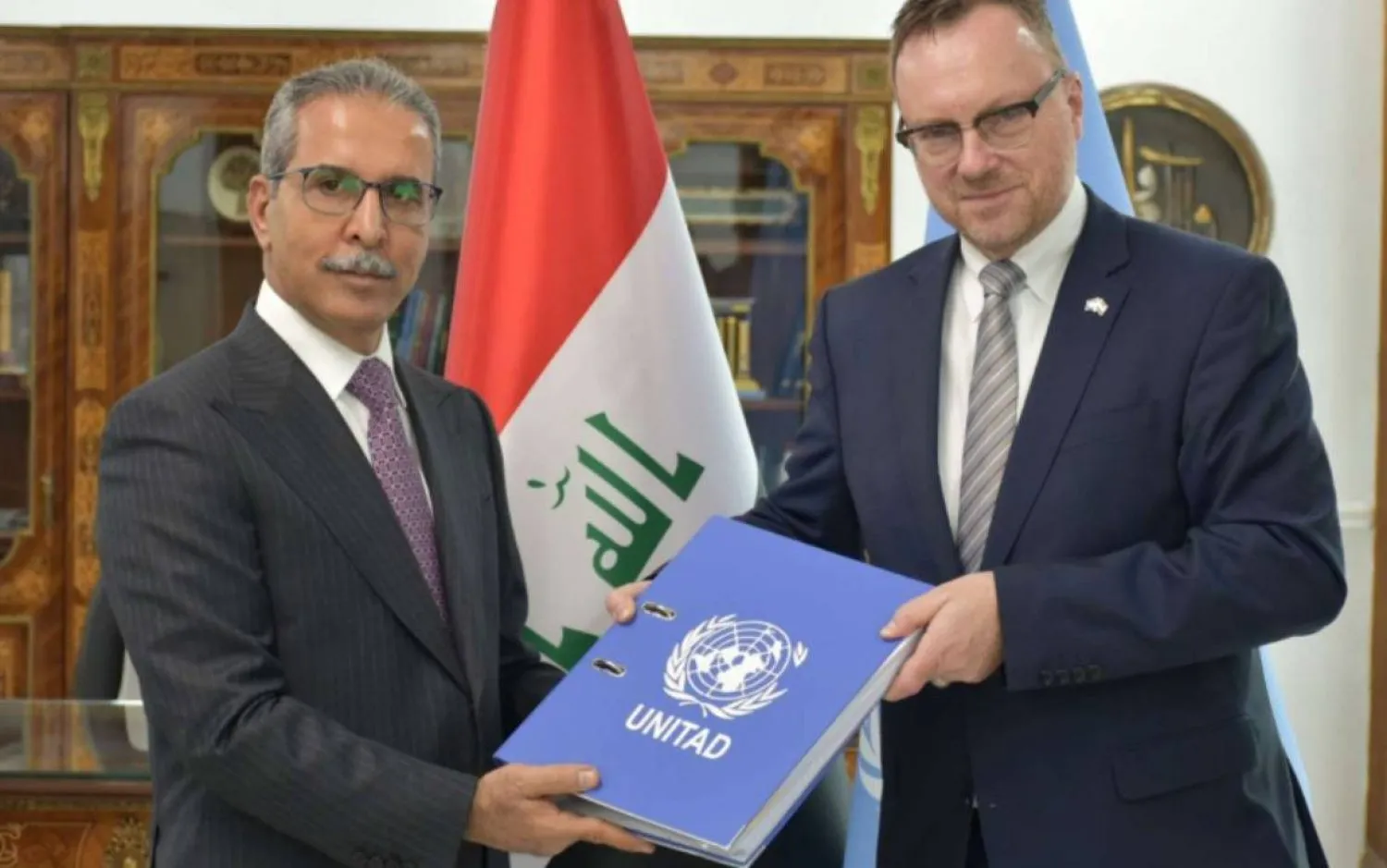The head of a United Nations body investigating crimes by ISIS in Iraq has expressed regret over "misunderstandings" that led to the premature end of its crucial mission, at Baghdad's request.
In a telephone interview with AFP, UNITAD head Ana Peyro Llopis reflected on its seven-year effort to bring the militants to justice.
Peyro Llopis noted it has been the only such international investigation mission to be established on the ground.
UNITAD's mission will end on September 17, years ahead of its expected completion, after the Security Council last year renewed its mandate for only one year at the request of Iraq's government.
ISIS seized vast swathes of Iraq and neighboring Syria and proclaimed a “caliphate” in 2014, carrying out abductions, beheadings, ethnic cleansing, mass killings and rapes.
After fierce battles, the Iraqi army, backed by a US-led international coalition, recaptured Mosul, declaring in December 2017 the defeat of ISIS in Iraq.
UNITAD was set up in September 2017 by the UN Security Council to investigate genocide and war crimes by the group.
68 Mass Graves
In August 2017, the Iraqi government asked the international community to help ensure that ISIS fighters are held accountable for their crimes.
One month later, the international community responded to this call, with the Security Council unanimously adopting resolution 2379 (2017), by which it requested the Secretary-General to establish an investigative team (UNITAD), headed by a Special Adviser, to support domestic efforts to hold ISIS accountable.
During its mandate, UNITAD wrote 19 reports on ISIS, including on specific crimes against minority Shiites and Yazidis and on the structure of the group.
It amassed 40 terabytes of digitized documentation and also worked on excavating mass graves.
“We recovered remains from 68 graves holding around 1,000 victims, 200 of whom we were able to identify,” Peyro Llopis said.
The team also studied evidence presented by Iraq, in addition to other documents of witnesses collected by the UN and not shared with the Iraqi authorities.
“The United Nations has strict rules of confidentiality and respect for the consent of those who testify,” Peyro Llopis said, meaning that not all evidence was passed on to the Iraqis.
Media reports spoke of tensions between UNITAD and the Baghdad government.
There have been ISIS-related prosecutions, mainly in Europe, that have involved UNITAD documents and have resulted in 15 convictions.
“The Iraqis have seen concrete results in foreign jurisdictions, and got the impression that UNITAD cooperated more with foreign states than with Iraq,” said Peyro Llopis.
“Everything could have been better explained,” she added.









